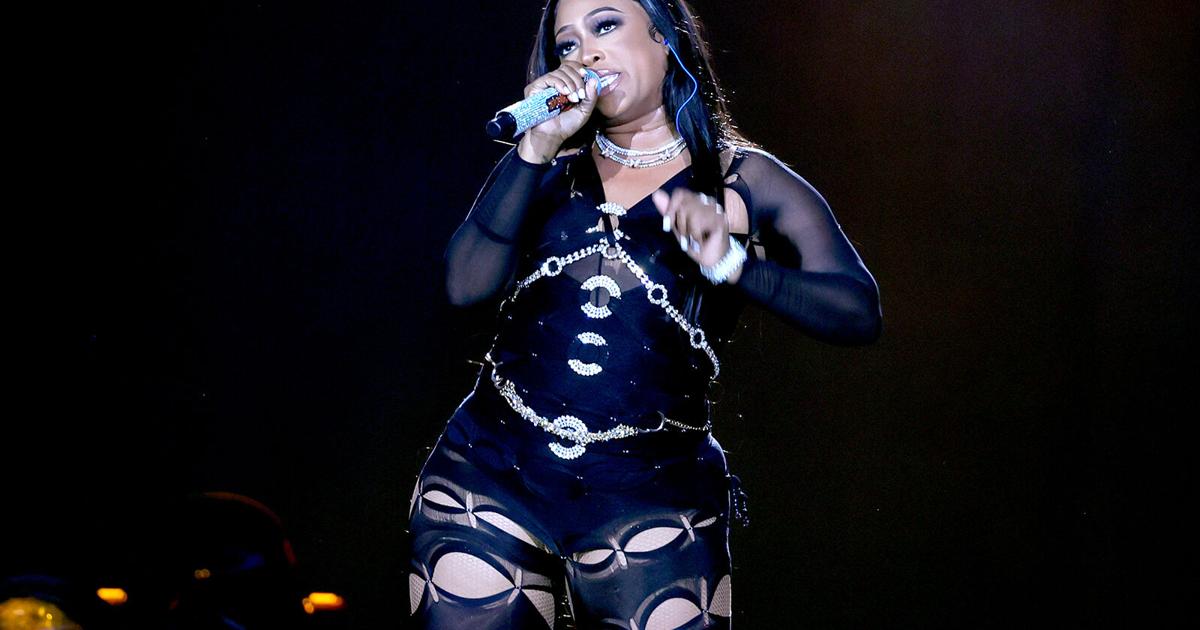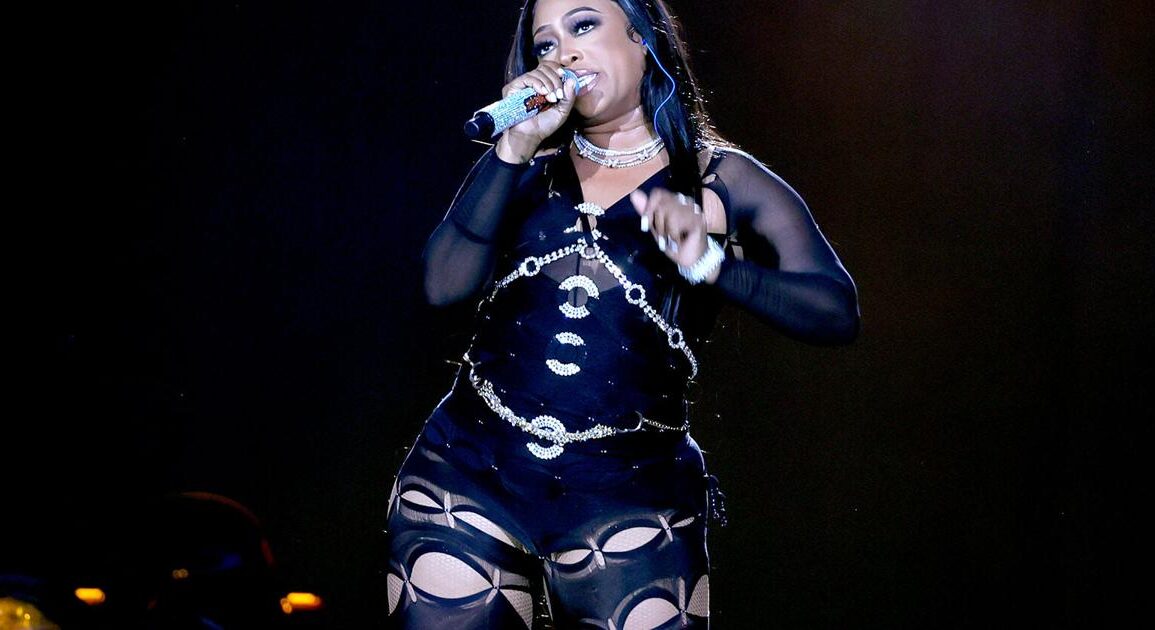
MIAMI — Women have left an indelible imprint on hip-hop.
They have been pioneers. They have been provocateurs. They have been unifiers. But in 2023, as the music birthed from the Bronx celebrates 50 years, women actually run hip-hop.
Not only do there seem to be more women rappers than ever before, there’s diversity: from established stars (Nicki Minaj, Cardi B, City Girls and Megan Thee Stallion) to lyricists (Chika, Tierra Whack and Rapsody) to up-and-comers (GloRilla, Coi Leray, Latto, Ice Spice and Sexyy Red). The common thread: their music is fun, an element lost among many male MCs whose music mainly drifts between narcotized lethargy and fantastical depictions of violence. And the men know it, too – Lil Baby told Complex, “Females [are] like, running the game right now“ in July.
But had it not been for two Miami icons, this season might not have happened. Luther Campbell, otherwise known as Uncle Luke, fought for rappers to be “as nasty as they wanna be” while Katrina Taylor aka Trina showed future female rappers how to own their sexuality while making fun music. Hip-hop, after all, originated from a party.
People are also reading…
Uncle Luke’s contributions go beyond founding Southern hip-hop’s first Black-owned label, Luke Records. The 1989 release of 2 Live Crew’s “As Nasty As They Wanna Be” transformed Uncle Luke, the group’s frontman, into a First Amendment warrior as several counties across Florida tried to ban the record for obscenity. Rather than cowering against the ruling, Uncle Luke stood tall. The case even made it all the way to the Supreme Court, where the justices refused to overturn a lower court’s ruling in Uncle Luke’s favor. In that moment, hip-hop changed forever as Black artists now had the legal precedent to say whatever they wanted on wax.
“If I don’t take on that fight, we probably wouldn’t be here right now and a lot of artists would be getting straight locked up for lyrics,” Uncle Luke told the Miami Herald.
“It’s amazing when I see the girls, it’s real interesting,” Uncle Luke said, recalling how people deemed him misogynistic and used to say his music degraded women. He’d always respond with this: “Don’t worry. At some point the women are going to be doing this. And now I’m looking at the women like ‘Whew.’ But it’s all expression, saying what you want to say, whether people agree with it or not. If you don’t like it, don’t buy it.”
New York rappers Lil Kim and Foxy Brown were two of the first females to rap explicitly about their sexuality. But Miami’s Trina took it to another level and in the process, became one of the South’s first defining voices, inspiring countless women to be “the baddest” and take ownership of their sexuality.
“And when I say the baddest chick – the baddest b——, bossed up – for me, that means staying true to yourself and who you are,” Trina recently told the Miami Herald. “That’s standing in self-confidence. That’s standing in yourself and trying to be the best woman you can be for yourself.”
The explicit lyrics that transformed Trina into a household name were just the beginning. Her music offers a window into a woman’s experience with songs that touch on everything from heartbreak (“Single Again”) to her Liberty City upbringing (“U & Me”) to even bisexuality (“Nann”). Couple that with her refusal to fall victim to hip-hop’s one queen myth – she has worked with everyone from Nicki Minaj to Da Brat to Missy Elliot to Eve – and it’s no wonder Atlanta-raised rapper Latto has called Trina the “blueprint.”
Miami rapper Sukihana, who starred in a season of “Love and Hip Hop: Miami,” stands at the intersection of Trina and Uncle Luke. Peruse through her catalog and it’s clear both Miami legends influenced the Delaware-born artist who says she used to draw a lot of Uncle Luke comparisons because of “how raunchy my music is.”
“I used to listen to a lot of Trina when I was young,” said Sukihana. Her 2023 collaboration with Sexyy Red entitled “Hood Rats” has all the elements that makes middle America clutch their pearls. “It seems like every woman artist always says ‘Trina, Trina, Trina’ but you can listen to my music and tell how I’m coming.”
She’s not the only one who pays homage to Trina. The Diamond Princess is like a folk hero to the current generation of femcees. You can draw a straight line from Trina’s raps to the dominant sound among women in hip-hop, which focuses on exploiting the patriarchy for their own gain. It’s a shameless reclamation of power in a genre where women are often treated as afterthoughts.
“Trina was a ‘It’ girl,” Sexyy Red told New York Magazine.
“In middle school, I tapped into my inner Trina,” Saweetie said in the docuseries “Ladies First: A Story of Women in Hip-Hop” before proclaiming her love for the Diamond Princess.
“I’m glad you were able to get your flowers while you were here because you deserve it,” Yung Miami told Trina following the Miami legend’s I Am Hip Hop recognition at the BET Awards.
This new group of femcees doesn’t intimidate Trina. Rather, she’s glad to see women flourishing in hip-hop.
Her excitement is evident as she sits inside a Little Haiti gallery in early August. In a few days, she’ll perform at Yankee Stadium for a hip-hop 50 celebration alongside fellow legends like Run D.M.C., Nas and Lil Kim. As Trina’s conversation shifts to the viral sensation that is Sexyy Red, she radiates with the pride of a proud big sister. Her lips curl into a smile as she recalls the first time she heard “Pound Town” in the club. She explains how Sexyy Red’s music is emblematic of her ‘hood. She even does a little dance as she recites the choruses of “Pound Town” and “SkeeYee.”
The girls “are popping up and popping out,” Trina said. “For me, that’s a good thing.”
This post was originally published on this site be sure to check out more of their content.




